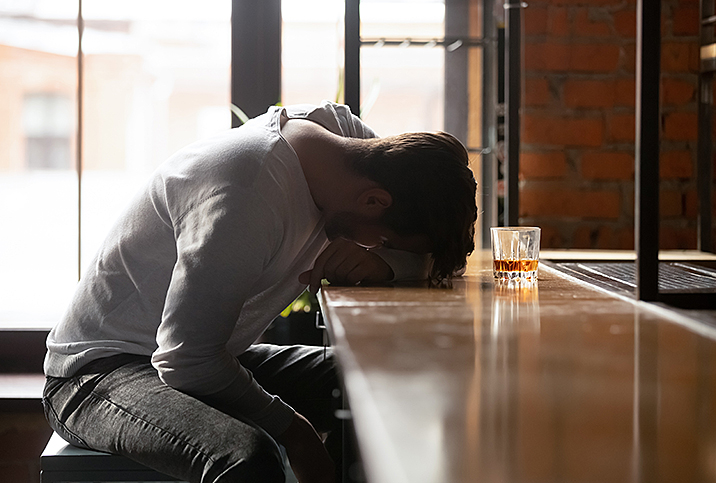The Ups and Downs of Benzodiazepines and Sex

Benzodiazepines, or "benzos," are among the most commonly prescribed mental health drugs in the United States. Some of the best-recognized ones are diazepam (brand name Valium), alprazolam (Xanax) and clonazepam (Klonopin).
According to the Food and Drug Administration, U.S. outpatient pharmacies dispensed about 92 million benzodiazepine prescriptions in 2019. But as with every type of medication, there can be side effects with the use of benzos.
What about complications involving benzos and sex? What can you do if you're experiencing side effects such as erectile dysfunction (ED) and low libido from this class of psychoactive drugs?
What are benzodiazepines?
Benzos are sedatives that work quickly to suppress the nervous system, according to Hana Patel, B.Sc., M.B.B.S., a general practitioner and mental health coach in London. Clinicians often prescribe them to treat anxiety, panic disorders and alcohol withdrawal.
There are receptors in your brain called gamma-aminobutyric acid A (GABA-A) receptors. Benzos attach to these receptors and inhibit nerve activity.
"For this reason, they are prescribed to help reduce anxiety and agitation symptoms. They may also help with muscle spasms, sleeping issues and reducing seizures," Patel said.
Side effects of benzos
The most common side effects associated with benzodiazepines are:
- Drowsiness
- Difficulty concentrating
- Headaches
- Vertigo
- Low libido
- Uncontrollable tremor
But let's focus on male sexual function.
"As benzodiazepines work to suppress the nervous system, common side effects are low libido and erectile dysfunction," Patel said.
Benzos suppress your central nervous system, diminishing your sex drive and potentially leading to ED. You may also feel drowsy after taking benzos, which could lower your interest in sex and lead to a decline in sexual performance.
But the connection between mental health, medication and sexual health is complex.
For example, anxiety, which benzos are used to treat, can also contribute to sexual dysfunction. So which came first? What is the root cause of ED? Is it the anxiety, the medication or something else entirely? And is ED causing further anxiety and creating a vicious cycle of symptoms?
Managing mental health and sexual dysfunction can be complicated, but options exist to help.
Giddy urologist Edwin Morales, M.D., provides an in-depth explanation of how certain medications can cause erectile dysfunction. Watch the video here.
Healthy lifestyle adaptations
Living a healthy lifestyle can positively impact your mental health and ED. You can adopt changes at home to work alongside the suggestions of your healthcare provider:
- Maintain a healthy body weight
- Exercise regularly
- Reduce stress levels
- Quit smoking
- Avoid excessive alcohol consumption
- Sleep well
Although these steps may seem simple, they can be highly beneficial for your mental, physical and sexual well-being.
Medical alternatives
Patel suggested that if you suffer from sexual side effects related to benzos, make an appointment with your healthcare provider to discuss alternative medications or look at reducing your current dose.
"If you do have to be on benzodiazepines, then it is recommended to be on the lowest dose possible for the shortest amount of time," Patel said. "Benzodiazepines have properties that make us tolerant to the medication, meaning that we have to take more of the medication to get the same effect over time."
The use of benzos can also lead to dependence, and the drug is commonly associated with overuse and abuse, so monitoring is important.
Several alternative medications can be prescribed in place of benzodiazepines. To treat general anxiety disorder, for example, your doctor might discuss selective serotonin reuptake inhibitors (SSRIs), selective norepinephrine reuptake inhibitors (SNRIs), anticonvulsants or buspirone.
The options depend on the reason benzodiazepines have been prescribed. Finding the right medication depends on your physical and mental health history.
Counseling and benzodiazepines
Medication can definitely be beneficial for many men, said Jeremy Henderson-Teelucksingh, a doctoral candidate at Cummings Graduate Institute of Behavioral Health, and a counselor, coach and consultant for Indigo Path Collective in Nashville, Tennessee. Therapy, though, can help men realize the root of their mental health issues without the use of prescription drugs—or with drugs, if necessary.
The therapy option can help a patient who experiences erectile dysfunction as a side effect of medication and is bothered by this because sex is important to them. A mental health counselor can help the patient identify what might be causing the mental health issue and, as a result, the ED. A drug might just mask what's actually wrong, Henderson-Teelucksingh said.
He explained that human sexuality is complex. If medication to treat mental health issues gets in the way of healthy sexual functioning, it's important to ask whether the drug is helping or hurting.
Treatment doesn't have to be a choice between drugs and counseling. The two can work hand in hand. And accessing mental healthcare has never been easier with the advent of telehealth services.
"In fact, these two systems are actually just one system that we've got to stop treating as two," he said.


















